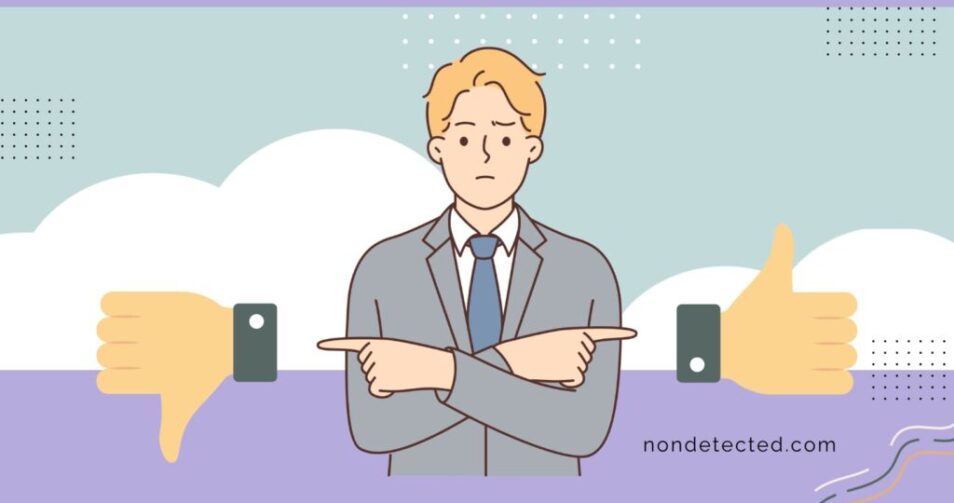How Do Negative Reviews Affect Your Business?

Oh, this exciting modern world is one where the power of online reviews cannot be overstated. With the rise of review sites like Yelp, Google Reviews, and TripAdvisor, etc., consumers have unprecedented access to customer feedback, significantly influencing their purchasing decisions. As a business owner, understanding the importance of online reviews and how they affect your business is crucial for maintaining a positive reputation and attracting potential customers.
Table of Contents
- Why are Online Reviews Matter?
- Popularity of Review Sites
- Definition and Types of Online Reviews
- How Negative Reviews Affect Your Business?
- The Real Impact of Negative Reviews
- Best Practices Managing and Responding to Reviews
- Effective Strategies for Positive Reviews
- Review Removal Services
- Ready to Work with Your Reviews Online?
And this is what we are going to cover in this read. Let’s start.
Why are Online Reviews Matter?
Online reviews serve as modern-day word-of-mouth. A single bad review can drive customers away, while a few bad reviews can severely damage a company’s reputation. Conversely, positive reviews can boost customer confidence and drive sales.
In fact, studies show that 86% of consumers read online reviews before making a purchase decision. This statistic underscores the need for businesses to pay close attention to their online reputation.
One real-life example highlights the impact of online reviews: a local restaurant saw a significant drop in customers after receiving a series of negative reviews about their service and food quality. Despite attempts to improve, the negative feedback lingered online, affecting their overall rating and deterring potential customers.
This example illustrates how critical it is for businesses to manage online reviews proactively.
Influence on Business Reputation
A business’s reputation is built on the foundation of customer experiences and the feedback they share. Negative online reviews can have a lasting impact, causing potential customers to question the quality of products or services offered. Negative feedback often carries more weight than positive comments, making it essential for businesses to both respond to bad reviews made publicly and address issues promptly.
To demonstrate, an unhappy customer left a negative review about a faulty product they purchased from an average business through an e-commerce store. The business’s failure to respond publicly affected that customer’s experience and influenced other potential customers who read the review. The negative impact on sales was noticeable, and the business had to implement a robust reputation management strategy to recover.
On the other hand, a company that actively engages with customer feedback can turn negative reviews into opportunities for improvement. Responding to negative comments and resolving issues demonstrates a commitment to customer satisfaction, which can enhance the business’s reputation.
Let’s check another example – a hotel that received a bad review about room cleanliness addressed the issue immediately, offered a refund, and invited the customer for a complimentary stay. This proactive approach mitigated the negative impact and earned the business positive reviews and more customers.
Popularity of Review Sites

Online review sites have become essential tools for consumers looking to make informed decisions. Platforms like Yelp, Google, TripAdvisor, Trustpilot, and SiteJabber dominate the landscape, offering spaces for customers to share their experiences and for businesses to engage with their audience.
Yelp is widely used for local businesses, especially restaurants and services. It allows users to leave reviews, which can significantly impact a business’s reputation. For example, a local diner in San Francisco saw a 20% increase in customer visits after consistently receiving positive reviews on Yelp.
Google Reviews is another critical platform that is integrated with Google’s search results and maps. This visibility makes it a powerful tool for influencing potential customers. A study showed that a one-star increase in a business’s Google rating can lead to a 5-9% increase in revenue.
TripAdvisor focuses on travel and hospitality, making it indispensable for hotels, restaurants, and attractions. A hotel in New York managed to boost its bookings by 15% after improving its TripAdvisor ratings through enhanced service and proactive management of negative reviews.
Trustpilot and SiteJabber cater to a broader range of businesses, providing reviews on various products and services. These platforms help build trust, as consumers often rely on them for authentic feedback before making purchasing decisions.
Facebook Reviews are not a basic review platform, but still essential for businesses looking to leverage social media’s reach. With its vast user base, Facebook allows customers to leave detailed FB feedback and ratings, which can greatly influence new customers
Consumer Trust in Online Reviews
Consumers place a high level of trust in online reviews, often valuing them as much as personal recommendations. According to a recent survey, 75.5% of consumers read online feedbacks before making a purchase, and moreover – trust al these reviews, highlighting the critical role these reviews play in the decision-making process. By the way, we have another article that could be a great addition to this one:
One instance being, an e-commerce company specializing in tech gadgets saw a dramatic percent increase in sales after focusing on gathering positive reviews and managing negative feedback effectively. So, it’s better for all businesses to address customer complaints and showcase positive experiences. This way, they can build a solid online reputation that attracts more customers.
Negative reviews, however, can be particularly damaging. A few bad reviews can deter potential customers and tarnish a business’s reputation. Consider the case of a new restaurant that opened with much fanfare but quickly garnered bad reviews for poor service. The initial wave of negative feedback led to a significant drop in foot traffic, demonstrating how quickly a company’s reputation can suffer from negative ones.
On the flip side, managing online reviews well can turn the tide. Responding publicly to negative comments and resolving issues can showcase a business’s commitment to customer satisfaction.
To give an example, a retailer faced with a negative review about shipping delays responded promptly, offering a discount and expedited shipping. This approach mitigated the bad feedback and resulted in positive reviews about their excellent customer service.
Definition and Types of Online Reviews
Online reviews are feedback left by customers about their experiences with products, services, or businesses on various review sites. These feedbacks can be positive, negative, or neutral and are often a mixture of written comments and star ratings.
On platforms like Google Reviews, Yelp, and TripAdvisor, customers can share detailed descriptions of their interactions, which potential customers read to make informed decisions.
Role of Positive Reviews in Building Trust
Positive reviews are a cornerstone of customer trust. They provide social proof that a business delivers on its promises. In particular, a local business that consistently receives good reviews on Yelp will likely see an increase in customers visiting, as potential customers are reassured by the positive feedback. This kind of customer satisfaction is vital for building a positive online reputation and attracting more customers.
Real-life cases have shown that businesses with high volumes of positive reviews experience significant growth in their customer base and sales.
The Problem with Negative Reviews
Negative reviews, however, present a different challenge. A single bad review hurts businesses by casting doubt on their reliability. Negative feedback can deter potential customers, especially if not managed properly.
This is why understanding the types of negative reviews and how to manage a high volume of bad reviews is crucial for maintaining a positive online reputation. Especially if your are facing reviews bombing, that unfortunately became extremely popular “black hat” activity nowadays.
Types of Negative Reviews
Negative reviews typically fall into several categories:
- Service Complaints. Issues with customer service or support.
- Product Quality. Complaints about the quality or functionality of a product.
- Misleading Information. Customers feel misled by marketing materials.
- Delays and Inconvenience. Problems with shipping or delays in service.
Common Phrases and Issues Highlighted
Common phrases in negative feedbacks often include “poor customer service,” “defective product,” “misleading advertisement,” and “long wait times.” By way of illustration, an unhappy customer might leave a negative review saying, “The product broke after one use, and customer service was unhelpful.” These reviews highlight key issues that need addressing to improve the overall customer experience.
Hence, you should identify and address the specific problems mentioned in negative reviews so your business can turn these challenges into opportunities for improvement. Responding publicly to such feedback shows potential customers that the business values customer feedback and is committed to resolving issues.
How Negative Reviews Affect Your Business?

Negative reviews have a powerful effect on consumer trust. When potential customers encounter negative feedback, they are less likely to trust the business.
Let’s check another possible situation here: a local business with a few bad reviews on Yelp may see a decline in customer visits, as potential customers may opt for competitors with better reviews. This highlights the critical role that consumer perception plays in business success.
Impact on Sales and Revenue
The impact of negative reviews on sales and revenue is significant. Businesses with negative feedbacks often experience a direct correlation with decreased sales. A study found that a single bad review can cost a business approximately 30 customers. It’s an average only, but I truly believe that for giant corporations it is mostly just general statistics, but for small businesses, it’s a pretty huge number.
Let’s imagine a restaurant receiving a bad review for poor service. This may cause a noticeable drop in reservations, directly affecting its revenue stream.
Long-term Reputation Damage
Negative reviews can cause long-term damage to a business’s reputation. Over time, accumulated negative feedback can lower a business’s overall rating on review sites, making it challenging to attract new customers.
For example, an e-commerce store plagued by negative reviews about shipping delays found it difficult to rebuild trust even after improving their logistics. This long-term damage illustrates the importance of consistently managing online reviews.
The Real Impact of Negative Reviews
Statistics reveal that consumers are highly influenced by online reviews. Approximately 86% of consumers read online reviews before making a purchase decision. When they encounter negative reviews, their hesitation increases significantly. A potential customer might decide against purchasing from a business after reading a few bad reviews, impacting the business’s sales and reputation.
Real-life examples demonstrate the severe repercussions of negative reviews. A small retail business, in a case like this, received multiple negative comments about its customer service. Despite efforts to improve, the initial wave of bad reviews deterred new customers, leading to a substantial decline in sales and nearly causing the business to fail. This example underscores the immediate and tangible effects that negative feedback can have on a business.
Consider another case of a hotel that experienced a downturn due to negative online reviews. Complaints about cleanliness and service quality led to a sharp drop in bookings. The hotel had to invest heavily in improving its services and managing online reviews to recover its reputation. This case study illustrates that while bad online reviews can cause significant damage, proactive reputation management can help mitigate the negative impact and restore customer trust.
I am providing all this examples for your understanding of why working with bad reviews is important for any business. I bet some of the readers might even faced the same or similar situation.
In all the further parts, I’ll keep doing the same way. Now let’s move forward to the best practices of how things done here.
Best Practices Managing and Responding to Reviews
Responding to negative reviews effectively can mitigate their impact. First, acknowledge the customer’s negative experience and apologize for any inconvenience.
Let’s say a customer leaves a bad review about a delayed shipment, a business owner should apologize and offer a solution, like a discount or expedited shipping. This shows that the company values customer feedback and is committed to improving customer satisfaction.
Or, a local business that received a negative review about poor service. The owner responded publicly, apologized, and invited the customer for a complimentary service. This proactive approach addressed the negative feedback and demonstrated the business’s dedication to customer satisfaction.
Legal Considerations and Rights
When managing online reviews, it’s essential to understand legal considerations. Businesses have the right to dispute fake reviews or defamatory comments, but they must tread carefully to avoid infringing on free speech. Yes, we all are living in a democratic world. Everyone deserves a right to share his comments and ideas, do we?
Therefore, legal advice should be sought when necessary to ensure that responses are appropriate and compliant with current laws in terms of digital content.
Turning Negative Reviews into Positive Opportunities
Addressing the issues raised and improving services can transform negative reviews from disappointed customers into positive opportunities. When a business responds promptly and effectively to negative feedback, it can turn a dissatisfied customer into a loyal one. Moreover, public responses show potential customers that the business is proactive in addressing concerns.
Take, for instance a restaurant faced negative feedbacks about food quality. By simply improving their recipes and publicly inviting unhappy customers to try the new menu for free, they not only addressed the complaints but also attracted new customers intrigued by the positive changes. I think it’s quite a great example on how things should work in reviews managemnt.
Effective Strategies for Positive Reviews
Encouraging satisfied customers to leave reviews is crucial for building a positive online reputation. One effective strategy is to request feedback after a positive customer experience. Businesses can also offer incentives, like discounts or loyalty points, for leaving reviews.
To demonstrate, an e-commerce store sends a follow-up email after each purchase, asking customers to leave a review. They also offer a small discount on their next purchase, motivating happy customers to share their positive experiences and enhancing the store’s online reputation.
Highlighting Positive Feedback
Showcasing positive reviews on websites and marketing materials can boost consumer trust. Highlighting testimonials and high ratings from review sites reassures potential customers about the quality of products or services.
As a case in point, a software company features customer testimonials on its homepage and includes a section for positive feedback from customers visit their Google Reviews. This strategy helps build trust and attract more customers, the only thing to do here is emphasizing customer satisfaction.
Leveraging Positive Reviews for Marketing
Positive reviews can be powerful marketing tools. They provide authentic, user-generated content that can be shared on social media, websites, and in promotional campaigns. This boosts the business’s credibility and reaches a broader audience.
One instance being a beauty salon that regularly shares positive reviews on its social media pages. By highlighting customer satisfaction and showcasing real experiences, it attracts more potential customers and builds a strong, positive online reputation. Isn’t it the most important goal for most businesses?
Review Removal Services
At NonDetected, we specialize in removing bad reviews and other false or defamatory information from the Web. It can be a negative online review or fake reviews impacting your company’s reputation, in any case our expert team can help you manage and remove these harmful comments.
This way, we assist businesses in maintaining a positive online reputation and ensuring that potential customers see only accurate and fair feedback.
Ready to Work with Your Reviews Online?
Online reviews wield significant power over a business’s success. Negative reviews can diminish consumer trust, reduce sales, and cause lasting damage to a business’s reputation. Conversely, positive reviews build trust and attract potential customers.
Managing online reviews effectively, addressing negative feedback, and encouraging satisfied customers to leave reviews are essential strategies for maintaining a positive online reputation. Another option is to try removing all or at least part of false fake reviews in case businesses can prove their illegality.
For those who are experiencing troubles with negative review removal, NonDetected specializes in this specific field. We help remove negative reviews and false or defamatory information.
Let us help you manage your online reputation and ensure your business thrives. Contact us today to learn more.


